Warren and Sanders Understand the Power of ‘The Bad Guy’
Misery needs a responsible party. In the absence of Democrats providing one, racist demagogues like Trump will make one up.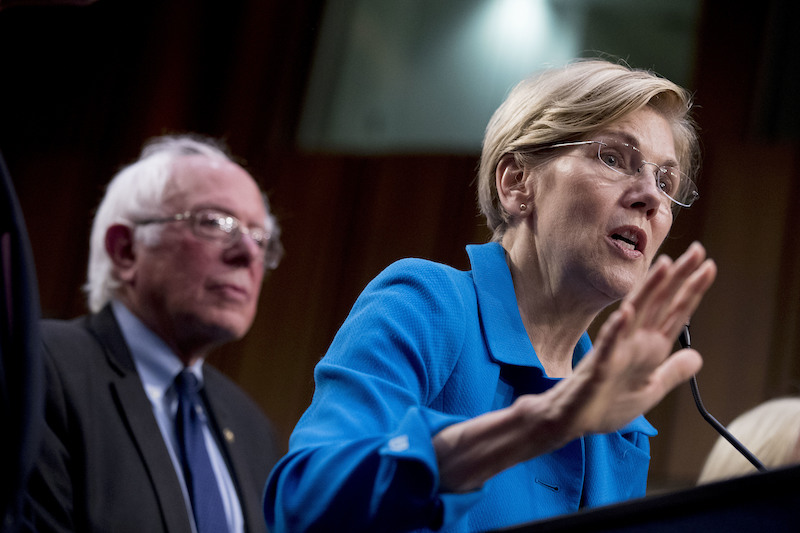 Sens. Bernie Sanders and Elizabeth Warren make a joint appearance on Capitol Hill during a 2017 news conference about health care reform. (Andrew Harnik / AP)
Sens. Bernie Sanders and Elizabeth Warren make a joint appearance on Capitol Hill during a 2017 news conference about health care reform. (Andrew Harnik / AP)
Progressive activist Norman Solomon offers a succinct description of neoliberalism: an ideology that sees victims but never victimizers. Bad things just happen. They’re the product of mysterious, unaccountable and ill-defined “market forces.” Factories just close, endless wars just “erupt,” the Nasdaq just crashes and our 401K and home equity just evaporate. No one specifically is responsible. And when someone is, around the margins, it’s a handful of faceless Arabs off in a cave somewhere or, increasingly, anonymous “Russians.” Our military and intelligence services are off fighting those Bad Guys. Trust us.
But intuitively we know this is inadequate. It’s clear neither Islamic State group nor the Russians caused the opium crisis, the housing bubble, racist policing, the predatory gig economy, massive college loans, endless wars or a host of other social ills. It’s human nature to seek out the causes of a crisis, name names and get a sense that, even if one accepts that terrorism and Putin are real and urgent threats, they’re small-time compared to those making us poor, overworked, drug-addicted, indebted and war-fatigued. We have victims—this much is obvious. But where are the victimizers?
Two 2020 presidential candidates, Sens. Bernie Sanders and Elizabeth Warren, have gone to great lengths to lay out who these victimizers are and to establish The Bad Guy—the former, first in 2016; the latter with more specificity in 2020. It goes without saying that both Sanders and Warren have major flaws (namely on matters of foreign policy and imperialism) and this article will not litigate those. It will, instead, argue only that their biggest asset—and the thing most necessary for the Democrats in 2020—is that they clearly establish who The Bad Guy is and how the Democratic presidential nominee is going to work to take that opponent down.
For Sanders and Warren, it’s simple: This Bad Guy is the rich, the one percent, the oligarchy—however one wants to put it. It’s not an exact definition (and some on the left think this vagueness, when globalized, carries its own potential problems), but it’s precise enough, and one that has been good enough for countless left-wing populist movements, reforms and revolutions for centuries.
Sanders’ use of the “millionaires and billionaires” refrain is well known but, for the purposes of this article, let’s focus on a recent video spot posted by Elizabeth Warren. The ad targets Appalachian voters with a simple message: The opium crisis that’s affected all your lives didn’t happen by accident. It was the product of deliberate corporate criminality. The spot isn’t ideologically pristine (some have noted it veers into medication-shaming) but it’s about as perfect a spot as a campaign can produce. It not only gives us a Bad Guy; it gives us a specific plan about how The Bad Guy will be taxed and, if needed, thrown in jail:
Kermit, West Virginia was slammed by the opioid crisis—and not by accident. Big pharmaceutical companies pumped 13 million prescription pills into this little town. In fact, these companies made $17 billion shipping opioids to West Virginia. Time for some accountability. pic.twitter.com/M1iF3cDt4I
— Elizabeth Warren (@ewarren) May 16, 2019
It explicitly says this “wasn’t an accident.” It names names, listing specific corporations. Warren looks directly into the camera. Viewers come away from this ad knowing exactly who The Bad Guy is.
In 2016, Trump understood the political power of The Bad Guy and, fully harnessing years of Fox News’ brand of faux-class warfare, proffered a made-up one: a racist fever dream, a Soros-Black Lives Matter-Islamo conspiracy out to get the underdog-middle-class white man. Its face wasn’t that of a wealthy bank or pharma exec but a (((globalist))) liberal donor, a masked Islamic State group fighter and the dreaded “liberal media.” For most, this rang false (after all, Clinton did get more votes than Trump), and for many more this Bad Guy was just a stand-in for their long ingrained, immovable racism. But for some, a small, but potentially decisive percentage of voters, it offered a culprit responsible for the ills around them.
It’s important, as I’ve noted time and again, that the much-heralded white working class is not Trump’s base—however, the largest defection of voters from Obama to Trump did come from this demographic. The median, most consequential Trump backer is a golf-tanned white man with $1.3 million in the bank who owns a network of Toyota dealerships in Central Florida. But—the domain of poor whites is where Trump picked up a lot of “winnable” ground—and where the Democrats can rightfully reassert themselves.
Only instead of offering up a racist, Fox News-concocted Bad Guy, Warren and Sanders can offer voters a real one: the rich, cynical prescription drug pusher; the bank executive who foreclosed on your aunt’s house; the retail overlord who docks your pay for taking bathroom breaks when you pick up shifts at Walmart.
In other words: the one percent. Some won’t take to it; most probably won’t. But the not irredeemably illiberal and racist Trump voter and nonvoter will, and this is a winnable demographic. This is not to say the poor whites need a Bad Guy any more than people of color—indeed people of color are overwhelmingly more economically populist than whites of all classes—only that Warren’s ad shows it’s possible to give them one without committing previous Democratic party sins of resorting to sleazy racist dog whistles.
As a point of reference, read this speech Hillary Clinton gave in Columbus, Ohio, weeks before the 2016 election. Contrast it with Warren’s urgent, class-based messaging. Nowhere, other than naming Trump, does it feature a real Bad Guy. In fact, Clinton claims, the status quo is “great”:
“We don’t have to make America great. We’ve got to do what we can to make sure it remains great and it becomes greater because we keep broadening that circle of opportunity. And please, never forget America is great because America is good, and if we deviate, if we deviate from our fundamental values—and that’s indeed the kind of campaign my opponent has run.”
She would briefly mention corporate malfeasance, but only in terms of “fraud” or the occasional excess of a Wells Fargo. Even when attempting to calibrate populist messaging, the rich aren’t presented by Clinton as an existential threat that must be combated and reined in, but rather as mostly good except for a few bad apples. Two weeks later, while campaigning in Florida, a state boasting the second worst level of inequality in the nation, Clinton told voters she “loved having the support of real billionaires, and they’ve been speaking up because … Donald gives a bad name to billionaires.” The result: a bloodless half measure that presents Trump as sullying the otherwise good name of capitalism. The Bad Guy for Clinton isn’t the rigged system or Wall Street; it’s an anomalous, Russia-installed one-off event that will come and go if you Just Vote Harder.
But Trump himself can’t be The Bad Guy, though he’s most certainly their creation. The ills plaguing working communities predate Trump, so it can’t just be one man to blame. And it can’t be Republicans per se—though they are the most popular conduit for this one percent. No, it has to be something more static, more bipartisan, something all-encompassing. People know they hate their boss, and by extension their boss’s boss. This Bad Guy—the one percent—is screwing them over regardless of who wins the Senate or occupies the White House. The Bad Guy must transcend all those specifics and must be seen in every outrage; every nickel-and-dime raise, every eviction, every friend lost to drugs, every cousin or niece returning from Iraq with PTSD.
Former Obama administrator of the Office of Information and Regulatory Affairs and unabashed elitist busybody Cass Sunstein touched on the psychological importance of The Bad Guy in his 2007 essay, “On the Divergent American Reactions to Terrorism and Climate Change,” albeit for more cynical ends. Describing what he coined “the Goldstein Effect”—borrowed from the use and misuse of Official State Enemy Emmanuel Goldstein in George Orwell’s “1984”—Sunstein detailed the importance of putting a face to an enemy, highlighting Osama bin Laden releasing menacing videos during the Bush years as giving the necessary propaganda fuel to sustain the War on Terror.
Sunstein didn’t see this as a problem—and indeed, he somewhat cravenly viewed it as a template to get people to care about global warming, but his overall point is sound: On a basic level, people need a face to a problem. The appeal of Warren and Sanders’ Bad Guy is that it has the moral benefit of being proportionate and identifying a more salient threat than far-off terrorists fueling a perma-war and U.S. imperial objectives. The rich are indeed fleecing the working class; all Warren’s and Sanders’ campaign rhetoric is doing is pointing out who, exactly, is doing the fleecing.
There is, of course, a lot of campaign money in making sure there is no Bad Guy, and if there is, it is identifiable as “the Russians” or “Islamic terror.” It’s not a coincidence the campaigns drawing the biggest donors—those of Pete Buttigieg, Kamala Harris, Cory Booker, Beto O’Rourke, Joe Biden—speak in the empty language of neoliberalism, a worldview without a Victimizer, without The Bad Guy. They produce only fatuous calls for “unity,” “ingenuity and creativity” and “hope.” After all, why would one name The Bad Guy when The Bad Guy is funding your campaign?
Booker’s early political career was astroturfed by Republican billionaire charter school boosters, his most famous moment: defending Bain Capital from the rare potshot that then-President Obama took at Wall Street. Buttigieg is a cheap Obama knock-off produced in a McKinsey & Co. laboratory who, like Obama, will vaguely acknowledge The Bad Guy but insists we can work alongside him. Biden is running to run, buoyed by name recognition and in many ways leaning into the fact that he’s The Bad Guy’s good friend, telling a Brookings audience earlier this month, “I don’t think 500 billionaires are the reason we’re in trouble. The folks at the top aren’t bad guys.” Shockingly, these very same Bad Guys—who he suspiciously insists are, in fact, not The Bad Guys—are rushing to back him.
There’s been a lot of back-and-forth since 2016 about whether Trump won because of economic problems or white racism or some combination of both. Obviously, those heavily invested in the status quo—the corporate wing of the party and Clinton campaign alums—have tremendous incentive to support the theory that Trump’s victory can simply be chalked up to the latter. (After all, if the problem can’t be fixed, there’s nothing to do about it, and the current Democratic elite is doing a swell job.) But professional Clinton critics and ideological leftists such as myself also have a stake in insisting it’s more a product of the former. (If it’s racism, full-stop, that propelled Trump to the White House, then left populism won’t achieve anything, so why bother?) It probably comes down to a combination of both factors, and in many ways it’s such a fluid dynamic it’s impossible to know for sure. But that’s the appeal of The Bad Guy: It doesn’t matter.
Targeting the rich doesn’t require pandering to racists or bleeding heart New York Times profiles of dispossessed neo-Nazis who are Simply Misunderstood—it requires a clear picture of who is leveling harm and what can be done to stop the perpetrators. Depressed African American turnout in Midwestern cities and a lack of enthusiasm across demographic groups indicate, with or without intractable white racism, a party in urgent need of moral focus. Warren and Sanders, with clear class critiques, can provide that focus and give people the opportunity to not just vote for or against someone, but to vote for someone who’s against someone—in this case, the rich.
Whether Democrats want to admit it or not, people across the board are being victimized. The most urgent question of 2020 is this: Which party is going to define the victimizer?
Your support matters…Independent journalism is under threat and overshadowed by heavily funded mainstream media.
You can help level the playing field. Become a member.
Your tax-deductible contribution keeps us digging beneath the headlines to give you thought-provoking, investigative reporting and analysis that unearths what's really happening- without compromise.
Give today to support our courageous, independent journalists.
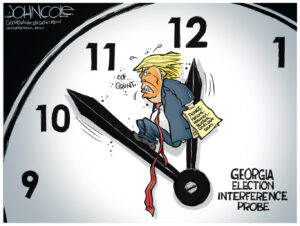

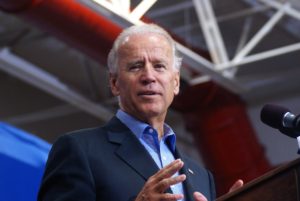
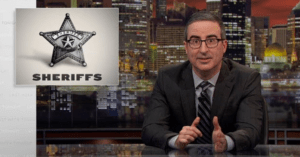
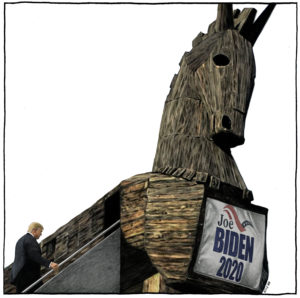
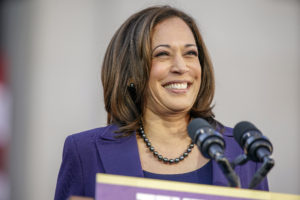
You need to be a supporter to comment.
There are currently no responses to this article.
Be the first to respond.